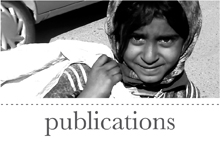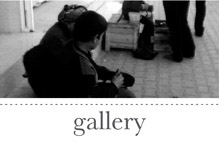Shemiran M. Odisho is secretary general of the Iraqi Women’s League and is from the Assyro-Chaldean minority. She was an ardent opponent of the Baathist regime at the cost of her education; those that were not members of the party did not have access to higher education. “I became a dressmaker. Because I was secretly an activist, I was nicknamed ‘Shemiran, Al-Khayafa’ (Shemiran, the dressmaker).” After the fall of the regime, she finished her studies, and today she fights against injustice and the occupation.
We are all aware that Iraqi suffering began prior to 2003 and continues today. Iraq has always been governed by fire and blood. Once rich, the American invasion has made Iraq poor. Women have paid as heavily since 2003 as under the regime of Saddam Hussein. The occupation has served to inflame sectarian conflict. Ethnic wars have affected all Iraqis and led to the deaths of many men and women, leaving thousands widowed and orphaned.
In recent years, murdering women has become somewhat common in Iraq. These murders are motivated by religion and ethnicity. In Bassora, in the south of the country, 137 crimes of honor have been perpetrated against women. These crimes also occur in other regions, including Kurdistan in the north. In some cases, simply working in a hair salon has been reason enough to justify such a crime against women.
The situation is different than what is portrayed daily by the media. Although the Americans play an important role, neighboring countries, which have a vested interest in an unstable Iraq, also exert great influence.
In collaboration with other networks that defend democracy, we work today to identify those responsible and to change the situation. The struggle of Iraqi democrats and women is played primarily at the legislative level in order to enforce respect for human rights. Among the motivations of these organizations is the right to life for women.
Today, 25% of Iraq’s parliament is composed of women, and this same proportion of women elected into office is found at the local level. This amount of representation is required by the constitution, but it is not sufficient. We will continue to fight. Our constitution is not yet acceptable; major gaps remain concerning human rights and the rights of women.
We have held talks with United Nations officials in order to consolidate our gains. Additionally, a debate has emerged regarding new provisions on the relationship between civil society and government. Our role as citizens is to push the government to advance democracy.
Iraq is at the heart of a situation that threatens the protection and respect of human rights, especially those of women. For the past five years, we have lived through great and difficult changes in Iraq. Nevertheless, I continue to hope that my country will overcome it. To do so, we need the support of the international community.












